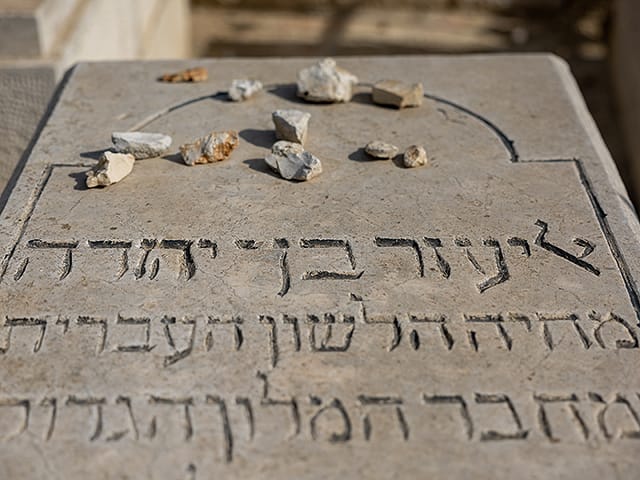The screening of the biopic "HaZvi," directed by Keren Margalit, depicting the "father of modern Hebrew" Eliezer Ben-Yehuda, has begun airing on the Kan platform.
The series' creators preemptively note that "some characters may be fictional, with no concrete evidence," aiming to forestall typical criticisms of biographical dramas.
However, the first episode diverges from Ben-Yehuda, focusing instead on the Tsipis family, recent arrivals from Odesa to Jerusalem.
The opening scene vividly portrays the challenges faced by the Tsipis sisters in their new surroundings: "Dirt everywhere. Streams of sweat flow all over the body. Sticky hair. And mosquitoes. Jewish mosquitoes."
These are not the words of contemporary immigrants, but a depiction of Jerusalem at the close of the 19th century, articulated by the young Tsipis siblings. They follow their father, Vladimir Fridman, to "Yerushalayim," where he, despite two years' residence, struggles to impart his love for Eretz Israel to his wife and daughters.
While the film is mainly centered around Ben Yehuda, the debut episode offers a captivating exploration of immigrant yearning, particularly embodied by the family matriarch, Chaya Tsipis (Michal Stamler Yanai), whose discomfort in the new land manifests as a persistent itch “down there, where children come from.”
The Tsipis family's foreignness is underscored by the cinematography, with the camera trailing them amidst Jerusalem's chaos, and Chaya's halting attempts at Hebrew captured in close-up, met with the relentless refrain of "Only Hebrew at Home!" Even Ben Yehuda's wife registers their disorientation.
Fruma, portrayed by the rapidly rising actress Suzanna Papian, known for her role in the TV series "Soviet," contemplates a covert return to Odesa to reunite with her lover.
However, her beloved, though a Hebrew instructor, prioritizes the ideals of the Russian Revolution over their relationship.
Concerned for Fruma's well-being and eager to foster her connection to Zion, her parents intervene. "Let's replace one revolution with another," suggests Chaya, fearing Fruma's potential escape.
Thus, they arrange for Fruma to work at the printing house of Eliezer Ben-Yehuda's "Ha-Zvi" newspaper. Initially swayed by her Odesa beau's progressive ideals, Fruma soon finds herself captivated by Ben Yehuda's fervor, depicted as a less somber figure than historians often portray.
The gruff publisher takes delight in Fruma's mastery of Hebrew, while she admires his determination to publish stories such as the lynching of girls suspected of prostitution. The series' primary intrigue is likely to revolve around the evolving dynamics between its central characters.












